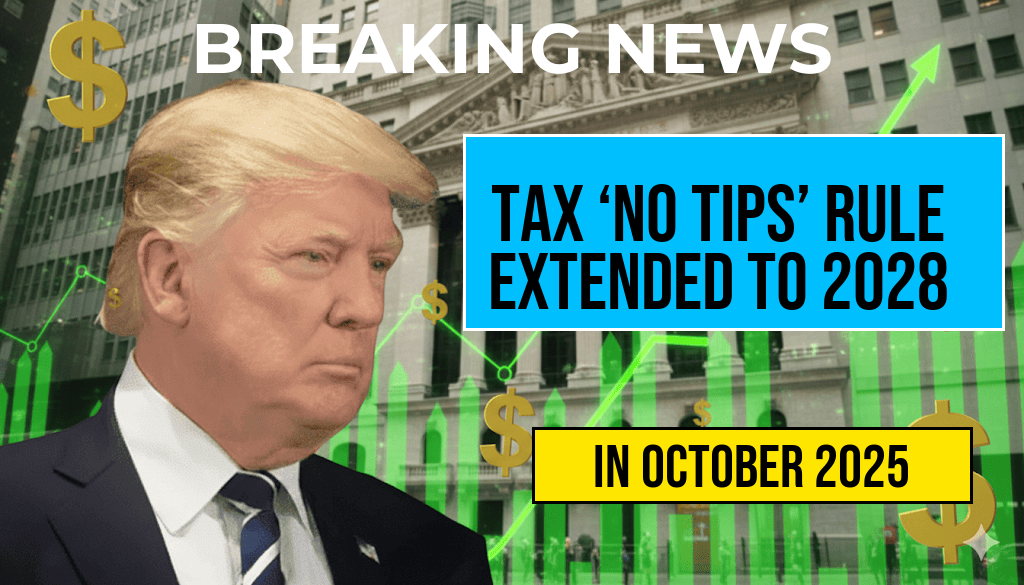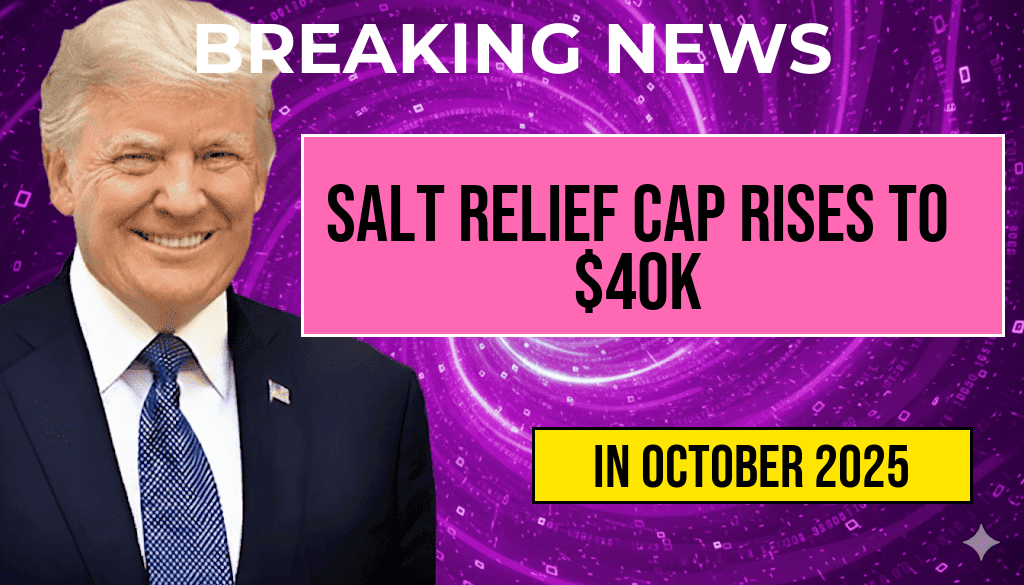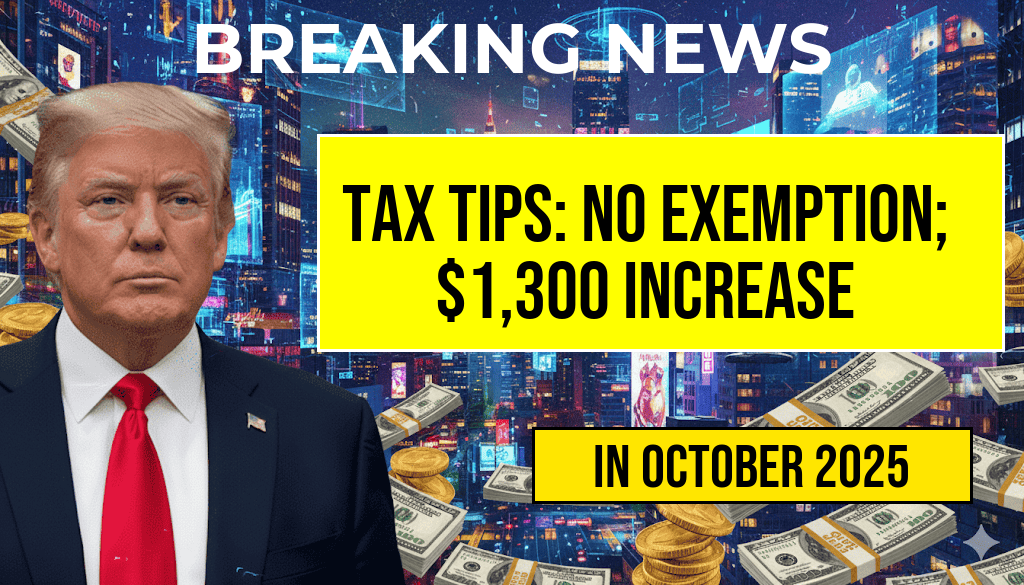The Internal Revenue Service (IRS) has announced the extension of the controversial “No Tips” rule through 2028, capping the amount at a $25,000 annual limit for employees. This policy, initially introduced as a temporary measure during the COVID-19 pandemic, aims to clarify tax obligations related to tips and gratuities for hospitality workers, but it has sparked ongoing debate among industry stakeholders and tax experts. Under the extended regulation, employees can report tips up to this $25,000 threshold without facing significant compliance hurdles, while employers are required to report and withhold taxes accordingly. The extension provides stability for businesses and workers alike, but also raises questions about the potential impact on tip-based earnings and tax transparency efforts.
Background of the ‘No Tips’ Rule and Its Extension
The original **‘No Tips’ rule** was introduced in 2020 amidst the economic upheaval caused by the pandemic. Its primary goal was to simplify tax reporting processes for hospitality workers, many of whom rely heavily on tips as a significant part of their income. The policy set a cap of $25,000 on annual tip income that employees could report without additional documentation, streamlining compliance for both workers and employers. Since then, the IRS has periodically reviewed and extended this measure, citing its role in reducing administrative burdens during an uncertain economic period.
Key Provisions of the Extended Rule
- Annual Tip Reporting Cap: Employees can report up to $25,000 in tips annually without requiring detailed documentation or separate reporting procedures.
- Extension Duration: The policy is extended through December 31, 2028, offering long-term clarity for the hospitality industry.
- Employer Responsibilities: Employers are mandated to report tip income accurately and withhold appropriate taxes, ensuring compliance and reducing potential audit risks.
- Employee Impact: Workers benefit from simplified reporting, but those earning above the cap may need to document additional income sources.
Industry Reactions and Economic Implications
The hospitality sector has shown mixed reactions to the policy extension. Many small business owners appreciate the predictability and reduced administrative workload, especially during a period of economic recovery. “This extension helps us plan better and reduces the fear of inadvertent non-compliance,” said Lisa Martinez, owner of a regional restaurant chain. Conversely, some workers and advocacy groups express concern that the cap might limit transparency of tip earnings, potentially impacting eligibility for certain benefits or tax credits.
Potential Effects on Earnings and Tax Compliance
| Scenario | Tip Income | Reporting Requirements | Tax Implications |
|---|---|---|---|
| Below Cap | $25,000 or less | Reported automatically; minimal documentation needed | Standard withholding; straightforward compliance |
| Above Cap | More than $25,000 | Requires additional documentation and reporting | Potential for increased audits; higher tax liability |
Tax analysts note that the cap aims to strike a balance between simplifying reporting and maintaining tax compliance. The IRS emphasizes that workers earning above the threshold should maintain detailed records to substantiate their tip income, especially if audited. Critics argue that the cap might inadvertently encourage underreporting among higher-earning staff, although the IRS maintains that enforcement efforts will continue to target non-compliance.
Broader Context and Future Outlook
The extension aligns with ongoing efforts to modernize tax regulations and improve enforcement. It also reflects a broader push toward transparency in the gig and service economies, where income can often be difficult to verify. As the hospitality industry adapts to evolving consumer habits and employment models, the policy’s longevity suggests it will remain a fixture for years to come.
For workers and employers seeking more detailed guidance, the IRS provides resources on its official website, including updates on reporting procedures and compliance tips. Industry associations are also monitoring the policy closely, advocating for adjustments to better accommodate the realities of tip-dependent work environments.
As the policy approaches its third extension, stakeholders will likely continue to evaluate its effectiveness and fairness. The ongoing dialogue underscores the importance of balancing tax integrity with practical considerations in a sector heavily reliant on gratuities.
For more insights into recent IRS regulations and tax policies, visit IRS.gov or consult industry-specific resources such as Forbes.
Frequently Asked Questions
Question
What is the main change to the tax ‘No Tips’ rule announced through 2028?
Question
What is the annual cap on tips that employees can report under this extended rule?
Question
How does the extension through 2028 impact workers who receive tips?
Question
Are there any restrictions or conditions associated with the new tip reporting cap?
Question
Why was the No Tips rule extended, and what are the potential benefits for employees and employers?






